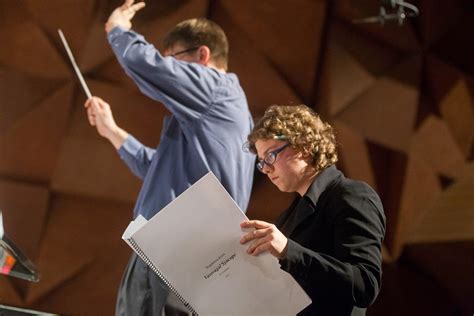Are you passionate about music and interested in pursuing a career in keyboard performance or composition? American universities offer a wealth of opportunities for aspiring musicians, with comprehensive keyboard programs that provide a solid foundation in music theory, technique, and performance. In this blog post, we will explore the various aspects of mastering the keyboard in American universities, including the role of keyboard programs, the curriculum and courses offered, techniques and exercises for mastering keyboard performance, and the integration of technology in these programs. We will also delve into the opportunities for music composition, collaborative experiences, masterclasses, performance opportunities, and career prospects for keyboard graduates. Whether you are an aspiring pianist or composer, this post will provide valuable insights into the world of keyboard programs in American universities. So, grab your sheet music and let’s dive into the world of keyboard mastery!
Table of Contents
The Role of Keyboard Programs in American Universities
Keyboard programs play a crucial role in American universities, providing students with a comprehensive education in music performance and theory. These programs offer a diverse range of courses, from music history and theory to keyboard performance and ensemble playing, giving students a well-rounded education in music.
One of the primary goals of keyboard programs is to equip students with the technical skills and theoretical knowledge necessary to excel in the field of music. Through a combination of solo, ensemble, and collaborative opportunities, students are able to develop their performance skills and broaden their musical horizons.
Additionally, keyboard programs often integrate technology into their curriculum, offering students the opportunity to explore the latest innovations in music production and performance. This not only prepares students for the digital age but also enhances their creative and technical abilities.
Moreover, keyboard programs provide students with a wide range of career paths and job prospects, equipping them with the necessary skills and experiences to pursue a successful career in music. Whether students aspire to become professional performers, composers, educators, or music therapists, keyboard programs offer a solid foundation for their future endeavors.
Curriculum and Courses Offered in Keyboard Programs
Keyboard programs in universities offer a diverse range of courses to develop the skills of aspiring musicians. These programs typically include music theory and ear training as foundational courses, providing students with a comprehensive understanding of musical structure and the ability to recognize different musical elements. In addition, students often take performance classes where they can showcase their skills and receive feedback from experienced instructors.
Moreover, keyboard programs also offer courses in music history, allowing students to explore the evolution of music over time and understand the cultural and historical context in which different musical styles emerged. This knowledge provides students with a deeper appreciation for the music they perform.
Furthermore, keyboard technique is a crucial aspect of these programs, and students often participate in classes that are specifically designed to improve their playing skills, ranging from finger exercises to hand coordination drills. Lastly, many programs also offer music composition courses, where students can learn to create their own musical pieces and develop their unique style as musicians.
Overall, the curriculum and courses offered in keyboard programs are designed to provide students with a well-rounded education in music, equipping them with the knowledge and skills needed to succeed in the music industry.
Techniques and Exercises for Mastering Keyboard Performance
Mastering keyboard performance is a complex and rewarding endeavor that requires dedication, patience, and of course, the right techniques and exercises. One of the most important aspects of keyboard performance is developing proper hand and finger technique. This can be achieved through regular practice of scales, arpeggios, and finger exercises. By consistently practicing these fundamental exercises, keyboard players can develop strength, dexterity, and agility in their hands and fingers, which are essential for executing complex musical passages.
Another key aspect of mastering keyboard performance is developing a deep understanding of music theory and harmony. By studying music theory and analyzing the harmonic structure of music, keyboard players can gain insight into the underlying principles of musical composition, which can greatly enhance their interpretive skills and performance capabilities. Additionally, practicing sight-reading exercises can help keyboard players improve their ability to quickly and accurately interpret and perform music, which is a valuable skill for any musician.
Furthermore, developing a sensitive and expressive touch is crucial for mastering keyboard performance. This can be achieved through practicing dynamics, phrasing, and articulation, as well as exploring different techniques for creating nuanced and expressive sounds on the keyboard. By experimenting with different touch and playing techniques, keyboard players can develop a personal and distinctive musical voice, which will set their performances apart.
Finally, mastering keyboard performance also requires mental and emotional preparation. Keyboard players must learn to manage performance anxiety, develop focus and concentration, and cultivate a deep connection with the music they are performing. This can be achieved through techniques such as mindfulness meditation, visualization, and mental practice, which can help keyboard players remain calm, focused, and present during performances.
Music Composition Programs and Opportunities
Aspiring composers looking to pursue a career in music composition have a wide range of programs and opportunities available to them. Whether it’s through traditional university programs or specialized music conservatories, there are a variety of paths to explore for those interested in honing their composition skills.
Many universities offer comprehensive music composition programs as part of their music department curriculum. These programs often include courses focused on theory, orchestration, and electronic composition, providing students with a strong foundation in musical language and technique.
Additionally, opportunities for composition students to collaborate with performers and ensembles can provide valuable experience in writing for different instruments and ensembles. This hands-on experience can be invaluable for aspiring composers as they develop their unique musical voice.
Furthermore, many music composition programs offer internships, workshops, and networking opportunities that can help students bridge the gap between academia and professional practice. These experiences can provide valuable insights into the music industry and help students establish connections within the field.
Integration of Technology in Keyboard Programs
Technology has become an integral part of keyboard programs in universities across the United States. With the advancement of digital music technology, students are now able to integrate new and innovative tools into their learning and performance experiences. These technological advancements have not only enhanced the way keyboard programs are taught and practiced, but also opened up new avenues for creative expression and collaboration.
One of the primary ways in which technology has been integrated into keyboard programs is through the use of digital keyboards and MIDI controllers. These instruments not only replicate the sound of traditional acoustic pianos, but also offer a wide range of digital sound effects and customizable settings. This has allowed students to explore different sounds and genres, expanding their musical repertoire and creativity.
Another significant aspect of technology integration in keyboard programs is the use of digital audio workstations (DAWs) and software programs. These tools enable students to compose, arrange, and produce their own music directly on their computers. With the help of DAWs, students can experiment with different musical styles and techniques, and gain valuable experience in music production and recording.
Furthermore, technology has also transformed the way keyboard students collaborate and perform. Virtual ensemble performances, online music collaborations, and live streaming concerts have become increasingly popular, allowing students to connect and perform with musicians from around the world. This not only enhances their performance skills, but also provides valuable exposure to the global music industry.
Collaborative Opportunities in Keyboard Programs
Collaboration is a key aspect of any successful music program, and keyboard programs are no exception. Whether it’s working with other musicians, composers, or even technology experts, there are numerous opportunities for keyboard students to collaborate and expand their horizons.
One of the most common forms of collaboration in keyboard programs is through ensemble performance. Keyboard students often have the chance to participate in chamber music groups, orchestra, or jazz bands, where they can learn from and work with other musicians. This not only enhances their technical skills but also teaches them the importance of teamwork and communication.
Another important aspect of collaborative opportunities in keyboard programs is the chance to work with composers. Many keyboard programs offer courses or workshops where students can collaborate with composers and premier new works. This provides valuable experience in interpreting and performing contemporary music, as well as the chance to build professional relationships with emerging composers.
Furthermore, keyboard programs often offer collaborative opportunities with other departments within the university, such as technology or audio engineering. Students may have the chance to work on interdisciplinary projects that combine music with technology, creating innovative and unique performances that push the boundaries of traditional keyboard music.
Faculty and Guest Artist Masterclasses in Keyboard Programs
Faculty and guest artist masterclasses play a crucial role in shaping the education and development of students in keyboard programs. These masterclasses provide students with the opportunity to learn from renowned professionals in the field, gaining insights and perspectives that go beyond the traditional classroom setting. The expertise and experience of these faculty and guest artists bring a wealth of knowledge and inspiration to the students, helping them to refine their technical skills and musical interpretation.
Additionally, these masterclasses offer students the chance to perform in front of esteemed musicians and receive valuable feedback, guidance, and mentorship. This direct interaction with established professionals not only enhances the students’ musical abilities but also provides them with networking opportunities that can be beneficial for their future careers. The exposure to different teaching styles and approaches further enriches the students’ learning experience, broadening their musical horizons and fostering a deeper understanding of the keyboard repertoire.
Furthermore, the presence of esteemed faculty and guest artists in masterclasses elevates the overall educational environment of the keyboard programs, inspiring a higher level of excellence and dedication among the students. The unique insights and perspectives shared by these professionals can ignite creativity and motivate students to strive for musical excellence. Through these masterclasses, students are not only honing their technical skills but also cultivating a deep appreciation for the art of keyboard performance.
In conclusion, faculty and guest artist masterclasses are an indispensable component of keyboard programs, offering students a unique and invaluable educational experience. The opportunity to engage with prominent figures in the music industry, receive personalized instruction, and broaden their artistic horizons significantly contributes to the growth and development of aspiring keyboard artists.
Performance Opportunities and Competitions for Keyboard Students
Keyboard students have a variety of performance opportunities and competitions available to help them develop and showcase their skills. These events provide valuable experience and exposure for students looking to pursue a career in music.
One such opportunity is participating in student recitals and showcases. These events are often organized by the university or music department and allow students to perform in front of an audience, gaining confidence and stage presence.
Competitions, such as concerto competitions, are another avenue for keyboard students to demonstrate their talent. Winning these competitions can lead to performance opportunities with orchestras and other professional ensembles.
Furthermore, students can also participate in local and national piano competitions, which provide a platform for students to receive recognition and feedback from experienced judges. These events can also lead to scholarships and other career development opportunities.
Developing a Personalized Practice Routine for Keyboard Mastery
When it comes to mastering the keyboard, having a personalized practice routine is essential. Developing a practice routine that is tailored to your specific needs and goals can greatly enhance your progress and maximize your potential as a keyboard player. It’s important to take into consideration factors such as your skill level, learning style, and the time you can dedicate to practice.
One key aspect of developing a personalized practice routine is setting achievable goals. It’s important to establish clear and realistic goals for each practice session and overall progress. Whether it’s learning a new piece, improving a specific technique, or increasing your speed, having measurable goals can help you stay focused and motivated.
Another important factor to consider is the variety of exercises and techniques that you incorporate into your practice routine. By including a mix of scales, arpeggios, sight-reading, and repertoire, you can ensure that you are developing a well-rounded skill set and addressing any areas of weakness.
Lastly, it’s crucial to make use of effective practice strategies such as slow practice, chunking, and deliberate practice. These techniques can help you optimize your practice time and improve your overall performance on the keyboard.
Career Paths and Job Prospects for Keyboard Graduates
After years of hard work and dedication, keyboard graduates are often faced with the question of what comes next. Fortunately, the career paths and job prospects for keyboard graduates are diverse and promising. With a solid foundation in music theory, performance, and technical skills, keyboard graduates are well-equipped to pursue various opportunities in the music industry.
Many keyboard graduates choose to pursue careers as professional pianists, performing in solo recitals, chamber ensembles, or as accompanists for vocalists and instrumentalists. These opportunities often allow graduates to continue honing their skills as performers while also sharing their passion for music with audiences around the world.
For those interested in teaching, keyboard graduates may find fulfilling careers as private instructors, music teachers in schools, or as faculty members at conservatories and universities. In these roles, keyboard graduates have the opportunity to inspire the next generation of musicians, imparting their knowledge and expertise to aspiring pianists and keyboardists.
Additionally, the music industry offers other career paths for keyboard graduates, including music composition, music production, and arts administration. With the rise of online platforms and digital media, keyboard graduates also have the opportunity to explore careers in music technology, audio engineering, and music entrepreneurship.





